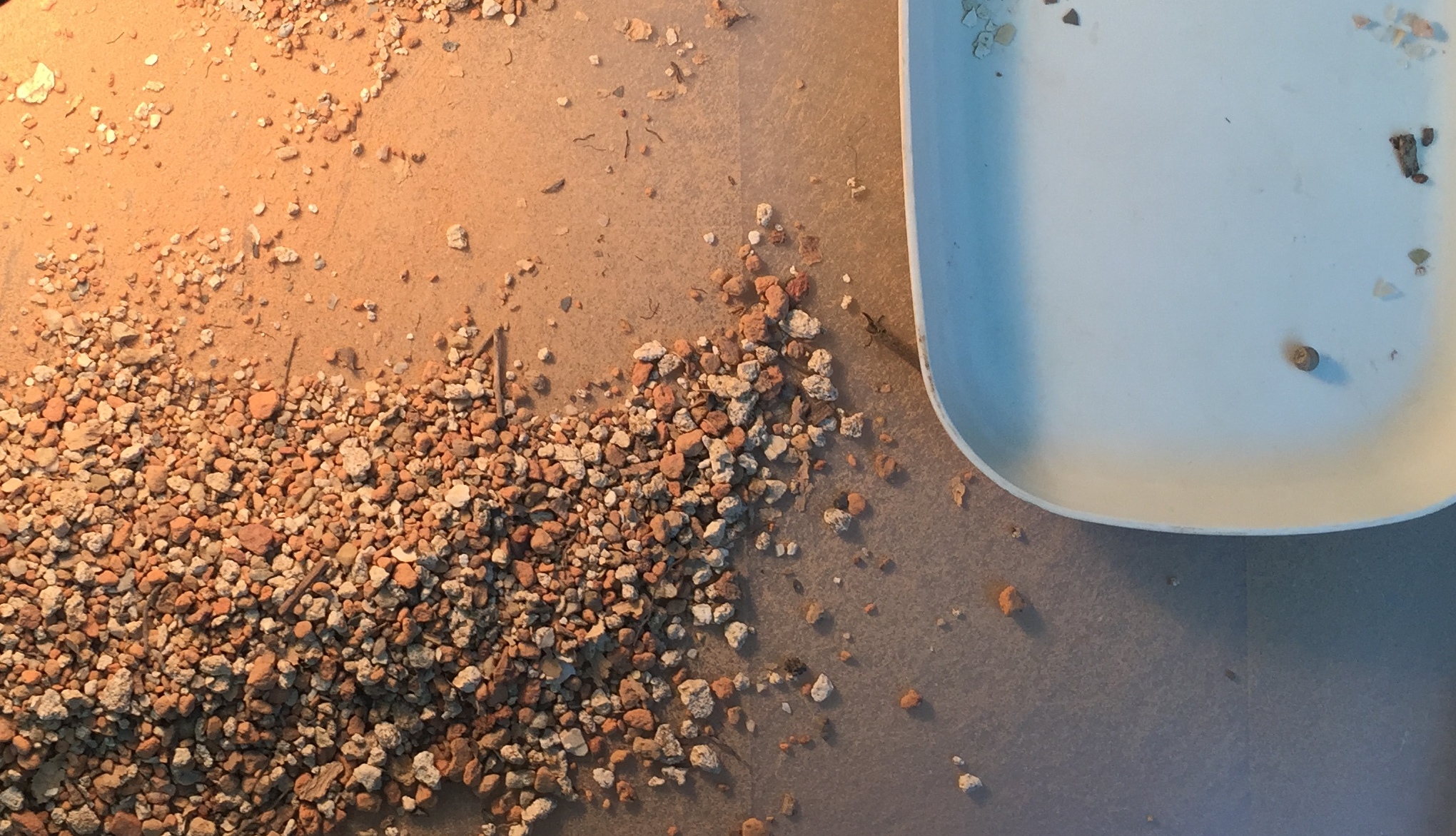
When I was a postulant, I spent several months in my office in the basement of the house of formation sorting "heavy fractions" from a flotation tank. This is an archaeological task of combing through piles of small stones in order to find the occasional small beads or fragments of bone and ceramics. "It's so monastic!" my formation director noted as she saw me one afternoon. It took me awhile to figure out what she meant, but the more I reflected on her comment, the more I realized that the task did encapsulate many of the elements which draw me to monastic life.
Although sorting through these samples is a dull task, it is one step along an archaeological process which allows me to tell the stories of people who lived in the past. While some of the Sisters in my community at first struggled with the idea of archeology as my ministry, one later observed, "You collect and record information about people's daily lives. That's exactly what Benedictines have been doing since the Dark Ages." Although my methods differ dramatically compared to back then, this commitment to learning and documenting people’s lives has been part of the Benedictine tradition for thousands of years, and I am grateful to be a part of it and to be able to pass it on.
For me, finding a community, and even more so an entire order, which values my vocation to tell the stories of those in the past has been a huge gift that monasticism has given me. Sorting heavy fraction is also essentially a solitary activity, but it leaves room for community and prayer. The task can be left at pretty much any stage in the process and picked up again at any time. Monasticism revolves around Liturgy of the Hours, which both provides support and creates demands for community life. My community prays up to four times daily and this formal recitation of psalms punctuates my days.
I prayed Liturgy of the Hours on my own (or in small groups) before I entered. However, the community commitment to this prayer calls me to both greater accountability and a deeper understanding of this form of prayer. It challenges me to place community--both my specific monastic community and the wider human community--at the center of my life and helps me grow in understanding in what living as community means. Neither a commitment to history nor Liturgy of the Hours, nor a sense of community is exclusive to monastic life.
I suspect that most religious communities share all of these values in one form or another. But for me, living in a monastic community has allowed me to shape my life around these values and to share them with the wider world, even in small ways like the sorting of an archaeological sample!
What values shape your life?